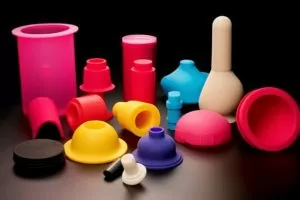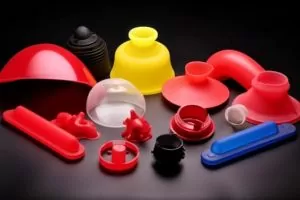Introduction
Silicone – makes silicone rubber it’s incredible versatility and exceptional properties have made it a go-to material across multiple industries, from automotive engineering to medical advances. Here we explore why it stands out as such an appealing material choice. Join us in this article as we journey into its fascinating world to discover its numerous uses across different sectors – ranging from automotive engineering to medical advancements – where silicone rubber’s exceptional set of advantages have played an instrumental role in improving performance and reliability across these various fields. Join us on this voyage of discovery as we uncover its limitless uses across diverse sectors – join us as we discover its unrivalled benefits across sectors!
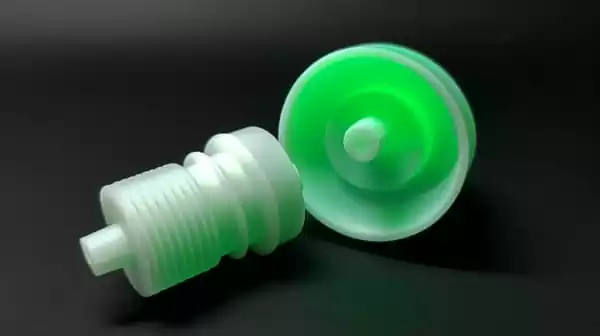
II. Understanding Silicone Rubber
Silicone rubber is a synthetic elastomer renowned for its distinctive properties, making it a valuable material in various applications. This section provides an insight into silicone rubber’s composition and its exceptional attributes.
A. Defining Silicone Rubber
Silicone rubber, often referred to simply as “silicone,” is a synthetic polymer primarily composed of silicon, oxygen, carbon, and hydrogen atoms. This unique combination gives silicone rubber its remarkable properties. Unlike natural rubber derived from latex, silicone rubber is created through a controlled chemical manufacturing process, resulting in a versatile material with a broad range of uses.
B. Highlighting Synthetic Origins and Unique Characteristics
Liquid Silicone rubber stands out among silicone rubbers due to its synthetic nature, setting it apart from organic rubbers like natural rubber and other elastomers. Its synthetic composition grants it several distinctive characteristics, including:
- Temperature Resistance: Silicone rubber can withstand extreme temperatures, both high and low, making it suitable for applications in extreme temperature environments.
- Chemical Properties: It exhibits remarkable resistance to corrosive and harsh chemicals, including acids, bases, and solvents.
- Biocompatibility: Silicone rubber is physiologically inert, making it safe for use in medical devices and applications within the human body.
- Flexibility and Durability: It boasts exceptional flexibility and resilience, ensuring long-lasting performance, even under mechanical stress and repeated compression.
- Ease of Manufacturing: Manufacturers appreciate silicone rubber for its ease of processing and molding, providing designers with greater freedom in product design.
- Food-Grade Suitability: Silicone rubber is non-toxic and safe for use in food and beverage applications.
- Sealing Capabilities: It excels in creating reliable seals and waterproofing, making it indispensable in various industries.
Understanding these fundamental aspects of silicone rubber is crucial to appreciating its widespread usage and the benefits it offers across diverse industries.
III. The Versatility of Silicone Rubber
Silicone rubber has earned its reputation for being one of the most versatile materials available, thanks to its exceptional properties and adaptability. This section delves into why silicone rubber is celebrated for its versatility and highlights its wide-ranging applications across various industries.
A. Celebrating Versatility
Silicone rubber’s versatility stems from its unique combination of characteristics that make it suitable for an extensive array of applications. Some key factors that contribute to its versatility include:
- Temperature Resistance: Silicone rubber can endure extreme temperatures, from scorching heat to freezing cold, without compromising its structural integrity. This property is invaluable in industries where temperature fluctuations are common.
- Chemical Resistance: It exhibits impressive resistance to a wide range of chemicals, including acids, bases, and solvents. This makes it an ideal choice in industries where exposure to corrosive substances is prevalent.
- Biocompatibility: Silicone rubber’s biocompatibility ensures its safe use in medical applications, including implants, catheters, and seals for pharmaceutical packaging. It complies with stringent FDA regulations, making it a trusted material in the medical field.
- Flexibility and Durability: Silicone rubber’s exceptional flexibility and durability allow it to withstand mechanical stress, vibration, and repeated or extended compression. This resilience ensures its reliability in various industrial settings.
- Ease of Manufacturing: Manufacturers favor silicone rubber for its ease of processing and molding. Its versatility in the manufacturing process enables the creation of a wide range of products in different shapes and sizes.
- Food-Grade Suitability: Silicone rubber’s non-toxic, food-grade properties make it a go-to material in the culinary world. It is used in baking mats, kitchen utensils, and food storage containers.
- Sealing Capabilities: Silicone rubber excels at creating reliable seals and waterproofing, making it indispensable in industries that require airtight and watertight solutions.
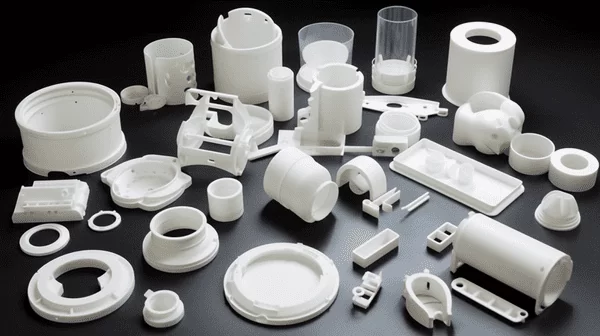
B. Applications Across Industries
Silicone rubber’s adaptability and remarkable properties have led to its widespread adoption across multiple industries, including but not limited to:
- Automotive Industry: Used for gaskets, seals, and engine components, silicone rubber enhances automotive reliability in extreme temperature environments.
- Electronics Industry: Valued as an electrical insulator, silicone rubber protects sensitive electronic components from moisture, dust, and electrical interference.
- Medical and Healthcare Sector: Compliant with FDA regulations, silicone rubber plays a pivotal role in manufacturing medical devices and equipment, ensuring patient safety.
- Construction Industry: Silicone rubber’s sealing and waterproofing capabilities are essential in construction for creating durable, weather-resistant parts.
- Food and Beverage Industry: Its non-toxic, food-grade suitability ensures the safety and integrity of food products during processing, storage, and sealing.
- Aerospace and Aviation: Silicone rubber’s reliability in creating seals for aircraft components makes it indispensable in aviation, where safety and performance are paramount.
The adaptability of silicone rubber, coupled with its unique attributes, positions it as a preferred material across a spectrum of industries. Its versatility contributes to enhancing product performance, longevity, and safety in diverse applications.
IV. Benefits of Silicone Rubber Across Industries
Silicone rubber’s exceptional properties make it an invaluable material in various industries, enhancing performance and reliability. This section explores the advantages and applications of various silicone rubber compounds in diverse sectors.
A. Automotive Industry
Silicone rubber finds extensive use in the automotive sector, where its unique attributes contribute to durability and performance, even in the harshest conditions:
- Automotive Gaskets and Seals: Silicone rubber is utilized for manufacturing gaskets and seals, ensuring reliable sealing in engines, transmissions, and other critical components. Its flexibility and resistance to extreme temperatures prevent oil and coolant leaks, enhancing engine efficiency.
- Engine Components: Silicone rubber is employed in engine components like O-rings and hoses due to its ability to withstand high temperatures without deforming or losing its sealing properties. This ensures the longevity of engine parts and minimizes maintenance.
B. Electronics Industry
Silicone rubber plays a crucial role in the electronics industry by safeguarding sensitive components and enhancing their performance:
- Electrical Insulator: As an outstanding electrical insulator, silicone rubber insulates and protects delicate electronic components from moisture, dust, and electrical interference. It prevents short circuits and maintains the reliability of electronic devices.
- Moisture Resistance: Silicone rubber’s resistance to moisture and UV light makes it ideal for sealing electronic enclosures, ensuring that internal components remain dry and functional.
C. Medical and Healthcare Sector
In the medical and healthcare field, silicone rubber’s unique properties can silicone rubber to meet stringent requirements:
- Biocompatibility: Silicone rubber is biocompatible and non-reactive within the human body, making it a safe material for medical devices, implants, and other applications. It complies with FDA regulations, ensuring patient safety.
- Medical Devices and Equipment: Silicone rubber is employed in various medical devices, including catheters, seals for pharmaceutical packaging, and prosthetics, where its flexibility, durability, and non-toxic nature are crucial.
D. Construction Industry
Silicone rubber’s sealing and waterproofing capabilities are indispensable in the construction industry:
- Sealing and Waterproofing: It is used for sealing joints, windows, and roofs, creating durable, weather-resistant parts. Silicone rubber’s resistance to UV radiation ensures that seals remain intact even under prolonged exposure to sunlight.
E. Food and Beverage Industry
Silicone rubber’s food-grade properties make it an excellent choice for ensuring food safety:
- Non-Toxic, Food-Grade Material: Silicone rubber is non-toxic and safe for use in food and beverage applications. It does not react with food or beverages, ensuring product integrity.
- Food Processing and Sealing: It is employed in various applications, including baking mats, kitchen utensils, and food storage containers, where its non-stick and sealing properties are advantageous.
F. Aerospace and Aviation
Silicone rubber’s reliability thermal stability in extreme conditions is pivotal in the aerospace and aviation sector:
- Aircraft Seals: Silicone rubber is used to create reliable seals for aircraft components, such as doors and windows. Its resistance to extreme temperature environments and durability ensure the safety and functionality of aviation systems.
Silicone rubber’s exceptional versatility and adaptability contribute significantly to enhancing product performance and reliability in these diverse industries. Its role in automotive durability, electronics protection, medical safety, construction reliability, food preservation, and aerospace security underscores its importance in shaping various sectors.
V. The Benefits of Silicone Rubber
Silicone rubber offers a wide array of benefits across various industries, owing to its unique properties. In this section, we will enumerate silicone rubber advantages and delve into the key advantages of silicone rubber.
A. Temperature Resistance
One of the most notable benefits of silicone rubber is its exceptional temperature resistance. It can withstand both high and low temperatures, making it suitable for a wide range of applications.
- Withstanding High Temperatures: Silicone rubber can endure extreme heat, making it ideal for use in environments where materials are exposed to scorching temperatures. It remains structurally stable even when subjected to intense heat, contributing to its longevity.
- Enduring Low Temperatures: On the flip side, silicone rubber retains its flexibility and resilience in freezing cold conditions. This makes it invaluable in applications where low-temperature performance is critical, such as in refrigeration and cryogenic systems.
B. Electrical Insulation
Silicone rubber possesses exceptional electrical insulating properties, making it indispensable in electrical and electronic applications.
- Exceptional Electrical Insulation: It acts as a reliable electrical insulator, protecting sensitive electronic components from moisture, dust, and electrical interference. Its high dielectric strength ensures the safe and efficient operation of electronic devices.
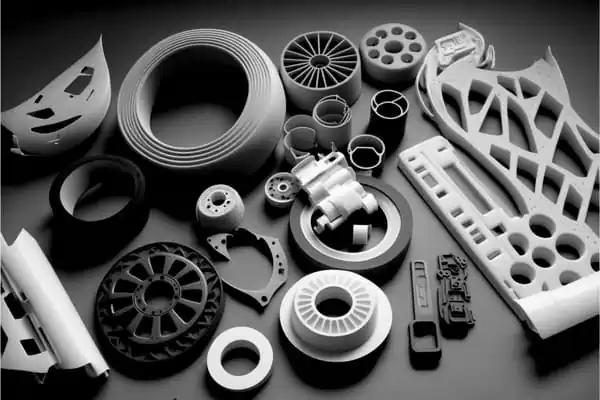
C. Chemical and Environmental Resistance
Silicone rubber exhibits impressive resistance to a wide range of chemicals, acids, bases, and solvents.
- Resistance to Chemicals: Whether exposed to corrosive chemicals or harsh environmental conditions, silicone rubber remains resilient. Its resistance to chemicals ensures that it can withstand exposure to acids, bases, solvents, and other corrosive substances.
D. Biocompatibility and Safety
In the medical and healthcare sectors of medical industry,medical grade material silicone rubber’s biocompatibility and safety standards are crucial.
- Biocompatibility: Silicone rubber is physiologically inert, making it safe for use within the human body. This biocompatibility ensures that it is suitable for medical devices, implants, and other applications where human contact is involved.
E. Durability and Flexibility
Silicone rubber’s durability and flexibility set it apart from other rubber materials too.
- Durability: It is exceptionally durable, capable of withstanding mechanical stress, vibration, and repeated or extended compression. This durability ensures the longevity of products and components made from silicone rubber.
- Flexibility: Silicone rubber’s inherent flexibility allows it to adapt to various shapes and sizes, making it a versatile material in manufacturing.

F. Ease of Manufacturing
Manufacturers appreciate silicone rubber for its ease of processing and adaptability for manufacturing.
- Manufacturing Flexibility: Silicone rubber can be easily molded into various shapes and sizes, providing designers with greater freedom in product design and manufacturing.
G. Food-Grade Suitability
Silicone rubber’s non-toxic, food-grade properties make it an ideal choice for applications in the food and beverage industry.
- Non-Toxic, Food-Grade Material: It is non-toxic and safe for use in food and beverage applications. Silicone rubber does not react with food or beverages, ensuring product integrity and safety.
H. Sealing and Waterproofing
Silicone rubber excels at creating reliable seals and waterproofing, making it indispensable in various industries.
- Reliable Sealing: Its exceptional sealing properties are invaluable in industries that require airtight and watertight solutions, such as construction and aerospace.
Silicone rubber’s diverse benefits, ranging from temperature resistance to biocompatibility and ease of manufacturing, make it a preferred material choice across industries. Its unique combination of properties contributes significantly to improving product performance, longevity, and safety in various applications.
Conclusion
In conclusion, silicone rubber stands as a remarkable and versatile material that plays a pivotal role in enhancing performance and reliability across a multitude of industries. Its unique combination of properties, including temperature resistance, electrical insulation, chemical resilience, biocompatibility, durability, flexibility, ease of manufacturing, food-grade suitability, and sealing capabilities, positions it as an indispensable choice for countless applications.
The importance of recognizing silicone rubber’s significant role in these industries cannot be overstated. Whether it’s sealing against extreme temperatures in the automotive sector, protecting sensitive electronic components, ensuring biocompatibility in the medical field trusted sealing material well, providing durable construction solutions, maintaining food safety, or enabling reliable aerospace components, silicone rubber consistently delivers exceptional results.
Silicone rubber is not merely a material; it is a reliable partner in innovation and progress, contributing to safer, more efficient, and longer-lasting products. Its adaptability and unique properties empower industries to meet stringent requirements and exceed expectations, ultimately enhancing the quality of life for individuals worldwide.
As we continue to push the boundaries of technology and design, silicone rubber will remain at the forefront of our journey, a testament to the extraordinary benefits that this versatile material brings to the table. Recognizing and harnessing its potential is key to achieving excellence across diverse industries, ensuring that silicone rubber’s legacy of enhancing performance and reliability endures for years to come.

